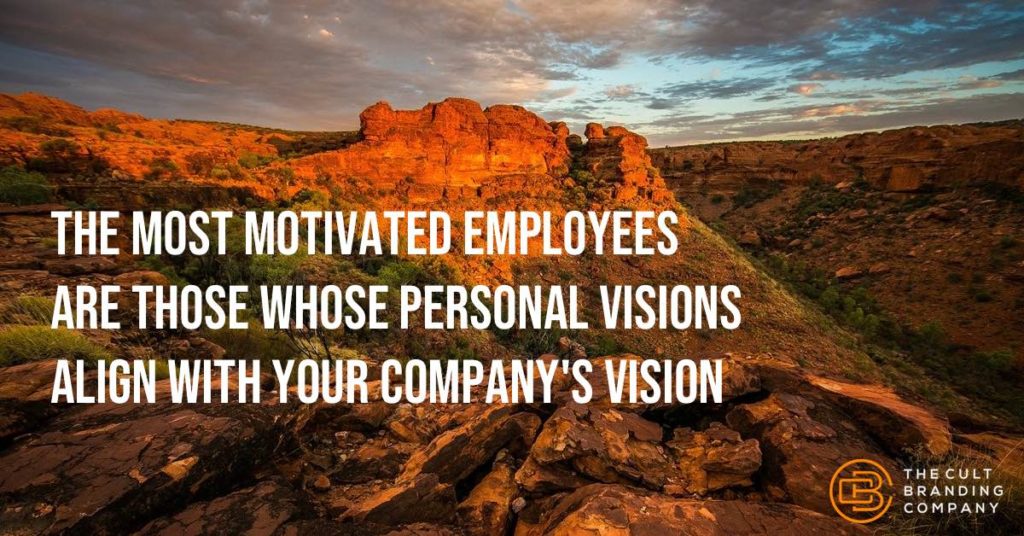
Focusing primarily on short-term goals can hinder long-term motivation because achieving short-term goals without an overarching purpose doesn’t result in lasting feelings of fulfillment.
When companies focus primarily on short-term goals, it’s usually because they don’t have a strong company vision. For them, what has to get done tomorrow is more important than what the company should become in the future.
When the goals are short-term, employee motivation comes in two forms:
- Extrinsic: This type of motivation makes employees achieve a goal they didn’t set and likely perceive as arbitrary, like increase revenue by 5%. It doesn’t push them towards anything they want: they do it purely because they have to do it and their job relies on getting it done. It has no joy. The motivation is purely functional; there is no personal choice.
- Goal-Based: This type of motivation is based on goals employees want to achieve, like winning an award or buying a Porsche. They will work hard so they can make enough money to buy the car. It only has joy until they achieve it. After they achieve the goal, it no longer inspires them and future goals need to become more extreme to be equally motivating (I got a Porsche, now I need a Lamborghini).
Neither of these forms of motivation helps people grow towards being the best versions of themselves: they don’t help them self-actualize. These motivations only make them act out of necessity or perceived necessity.
Not only do they hinder employee growth, but they also lead to dysfunctional organizations: Most companies that focus on short-term goals force an extrinsic goal—like grow sales by 5%—on a person and the person will attempt to achieve it by convincing themselves that they are working to achieve some goal that is unrelated to the company’s goal—like a new Porsche. The person isn’t motivated by what the company seeks to achieve and the company’s actions show they don’t care about what the employee wants to achieve personally. This creates employees that don’t care about the success of the company and only care about achieving some reward that motivates them temporarily. And, it leads to a lack of shared goals among team members and discord in an organization.
Companies with long-term, purpose-driven visions can align themselves with the journeys the employees want to go on in their own lives and grow with the employees toward a shared goal.
This isn’t to say short-term goals aren’t important—they are because they create concrete things to work towards—but they must be motivated by a purpose-driven vision shared by the company and its employees.
Is your vision strong enough to motivate your employees? Are you hiring employees whose personal visions overlap with your long-term vision?
P.S. If you need help creating a company vision that will help create highly motivated employees, we’ve created The Ultimate Guide to Creating a Company Vision. Find out more by clicking here.
